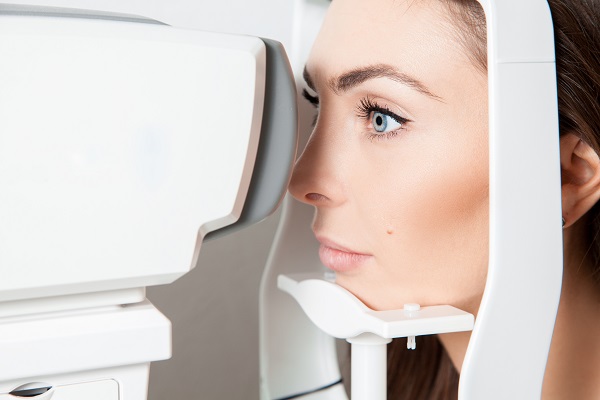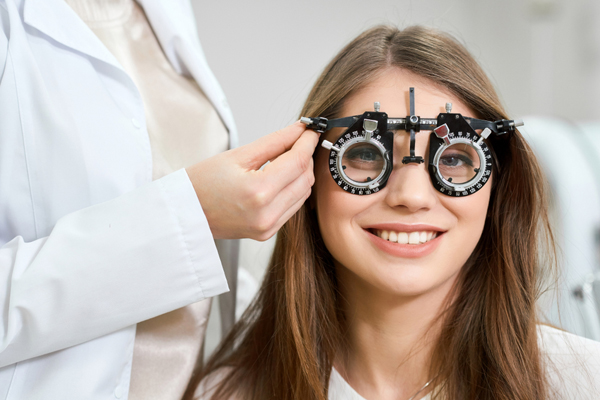Difference Between an Optometrist, Ophthalmologist and Optician

If you are thinking about seeing an Optometrist, you should first look at your options. When you understand what this doctor does, you can make the right choice for your eye health. Other medical professionals help patients with their eyes too, so it is important that you get the relief and treatment you need.
Eye conditions that doctors can diagnose and treat
People depend on their sight at every waking moment of the day. When a condition inhibits a person’s eyesight, it can disrupt the individual’s quality of life. Like any part of the body, eyes can experience problems. Some conditions are minor and require little intervention. Other issues can lead to the most serious consequences such as blindness. Here are some problems for which patients seek a doctor’s care:
- Blurred vision
- Double vision
- Seeing halos
- Eye injuries
- Loss of peripheral vision
The role of an optometrist
This professional can test a person’s eyesight for dysfunctions and abnormalities and determine whether the patient needs corrective lenses. The optometrist can identify certain conditions and can prescribe medication. An optometrist goes to four years of optometry school but is not a medical doctor. Instead, the individual earns a doctorate in optometry. If a patient’s vision is changing, this primary care professional is the right person to see.
The role of an ophthalmologist
There are similarities between this doctor and an optometrist. Both doctors can diagnose and treat eye conditions. However, an ophthalmologist has additional training and can practice medicine. This person is also authorized and qualified to perform surgery on the patient’s eyes. Some of these eye doctors will focus on a particular area of the eye such as the cornea or retina. Some may work chiefly with children, while others may research the prevention of certain eye diseases.
The role of an optician
An optician is not a medical doctor and is not required to hold a doctorate. This person has the knowledge and training to design and fit a patient with glasses or contact lenses. This professional cannot diagnose or treat conditions. They do not write prescriptions but use those that they receive from an ophthalmologist or optometrist.
Know the right place
Before moving forward with eye care, patients should understand which individual will provide the right service. People who need surgery should visit with an ophthalmologist. A patient who is having eye pain or experiences vision changes should get help from either an ophthalmologist or an optometrist. To see different contact lens or eyeglasses options, an optician is a good choice.
See the whole picture
When it comes to caring for your optical health, all three of these professionals play a key role. You want to go to the person you know has the tools to help you. Consider your needs and what each person can do to provide relief. If you decide to visit with an optometrist, give one a call today and set up an appointment to evaluate your vision. You will be glad you understood the distinctions between these three medical providers.
Get more information about Bright Eyes Optometry in Mt Vernon at https://brighteyesmv.com.
Check out what others are saying about our services on Yelp: Read our Yelp reviews.
Recent Posts
Emergency eye care is needed if you find yourself dealing with a problem with your eye that causes pain or affects your vision. Failing to treat eye injuries as soon as they are detected can lead to permanent consequences, like reduced vision or blindness. Common eye injuries that require emergency eye care include: Exposure to…
Looking for more information on eye protection? An ophthalmologist knows everything there is to know about protecting the eyes. While there are a few different types of eye care professionals, ophthalmologists are eye care professionals who have undergone additional years of education and training so they can offer their patients both medical and surgical eye…
Controlling myopia at an early age can slow down its progression. This can help prevent yearly upgrades for stronger glasses. Your optometrist can help by offering various treatments. If you want to find out how your optometrist can help control myopia, here are the details.Optometrists use atropine eye drops to achieve short-term myopia control results.…
Another word for an itchy eye is ocular pruritis. It is a common health situation in many people. Itchiness in your eyes is more than enough reason to see an optometrist. Receiving prompt treatment is important in receiving prompt relief. If you want to know what causes an itchy eye and the treatments for it,…



